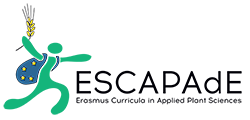English title:
Agroecology, cultural ecology and ethnoecology - the interdisciplinary discourse in natural resource management
Course ID:
933329
ECTS credits:
3,0
Title in native language:
Agroecology, cultural ecology and ethnoecology - the interdisciplinary discourse in natural resource management (in Eng.)
Agroecology, cultural ecology and ethnoecology - the interdisciplinary discourse in natural resource management (in Eng.)
Term Semester:
Spring/Summer
Instruction language(s):
English
Course content:
Scientific research builds on the state of the art in a field of research and therefore begins with reading, analysing and synthesising the current scientific literature. Understanding the latest scientific findings is a prerequisite for going beyond the state of the art and thus conducting good research.
This course addresses this very first task of any scientific enquiry and is designed for students who want to strengthen their literature review writing skills. Among other benefits, this course offers the opportunity to gain critical skills for writing a master's thesis and is excellent preparation for that endeavour.
The topics to be reviewed in this course are to be chosen from agroecology and ethnoecology and examine the diverse interactions between humans and nature. Students define the topics themselves and students working on a master's thesis or dissertation can work on topics related to their theses.
This course addresses this very first task of any scientific enquiry and is designed for students who want to strengthen their literature review writing skills. Among other benefits, this course offers the opportunity to gain critical skills for writing a master's thesis and is excellent preparation for that endeavour.
The topics to be reviewed in this course are to be chosen from agroecology and ethnoecology and examine the diverse interactions between humans and nature. Students define the topics themselves and students working on a master's thesis or dissertation can work on topics related to their theses.
Expected previous knowledge:
This course is designed for students who are well into their Master studies and wish to start to prepare for their Master thesis (or doctorate). Prior basic knowledge in searching, reading and analysing scientific literature is expected. Exceptionally, master students who are early in their Master studies and have very little prior knowledge with handling scientific literature can also participate – they have to be aware though that the time investment can easily exceed the estimated 75 working hours (=3 ECTS) then.
Learning outcomes:
Upon completion of this course, the students will have improved their skills related to
• Critically analysing scientific literature about agroecology, cultural ecology and ethnoecology
• Writing logical and concise scientific texts
• Examining and explaining specific interactions between humans and nature
• Critically analysing scientific literature about agroecology, cultural ecology and ethnoecology
• Writing logical and concise scientific texts
• Examining and explaining specific interactions between humans and nature
Teaching and learning methods:
The lecturer guides step-by-step through the process of composing literature reviews. The courses include short presentations, exercises, peer reviews, guided discussions and group work. Active participation of students during courses. including discussion of their work progress and results achieved, is required.
The students compose concise literature reviews, peer review the work of other participants and complete assignments between courses. They report about their work progress in weekly submissions to BOKUIearn.
The students compose concise literature reviews, peer review the work of other participants and complete assignments between courses. They report about their work progress in weekly submissions to BOKUIearn.
Exam method:
Ongoing assessment.
Assessment criteria
+ Quality of assignments (40%);
+ Quality of literature review (60%).
Assessment criteria
+ Quality of assignments (40%);
+ Quality of literature review (60%).
Organisation: University of Natural Resources and Life Sciences Vienna
Country:
Austria
Acronym:
BOKU
ERASMUS+ code:
A WIEN03
Teaching period summer semester:
22. Feb 2021 - 30. Sep 2021
Teaching period winter semester:
13. Oct 2020 - 21. Feb 2021
University website:
